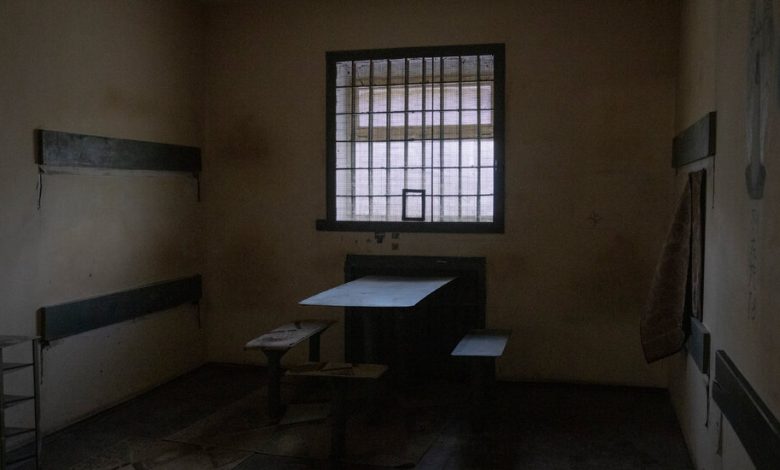New Evidence Found of Rape and Torture by Russian Forces in Ukraine

A United Nations commission has found new evidence that Russian forces committed war crimes in Ukraine, including deliberate killings, rape and the removal of Ukrainian children, according to a report released on Friday. Victim testimonies also asserted the systematic and widespread use of torture in several Russian detention facilities, the report said.
Drawing on more than 450 interviews with victims and witnesses in areas liberated by Ukrainian troops or who have fled Russian-held territory, the report documents the use of electric shocks against prisoners accused of supporting Ukrainian forces, the rape of women ranging in age from 16 to 83 and the transfer of unaccompanied Ukrainian children to Russian territory.
The report, by a panel commissioned by the U.N. Human Rights Council, focused on the southern regions of Kherson and Zaporizhzhia, where Russian forces quickly seized territory at the start of their full-scale invasion last year. Unlike north-central Ukraine, which Kyiv’s forces have liberated, allowing investigators to more quickly uncover crimes by Russian forces, parts of those two regions remain under Moscow’s control and are largely inaccessible to international organizations. That has complicated investigations and stoked fears that the millions of people living there are at risk of human rights abuses.
Testimonies in the report painted a damning picture of life under Russian occupation, with the commission saying in a statement that acts of “rape and other sexual violence were often committed together with additional acts of violence against the victims, including severe beatings, strangling, suffocating, slashing, shooting next to the head of the victim and willful killing.”
Ukrainian forces have also been accused of abuses, and the report documents three cases of mistreatment of Ukrainians who had been accused of collaborating with Russia. Previous U.N. reports have described abuse of Russian prisoners of war by Ukrainians.
But prosecutors and human rights groups say that those examples are nowhere near the scale of the crimes committed by Russian forces, which include the execution of residents in Bucha and indiscriminate attacks on civilians with missiles and rockets.
The commission found that torture was widely used on Ukrainians in detention facilities in Russian-controlled territories in Ukraine, as well as in Russia. Prisoners, many of whom said they had been detained only because they held pro-Ukrainian views, reported the existence of rooms specifically allocated to violent interrogation. Torture methods included beatings with batons and machine guns, as well as the use of electric shocks with wires connected to earlobes, toes or genitals.
“It was so painful that I could not stop screaming like crazy,” an unnamed woman who endured electric shocks told the investigators. Witnesses also reported situations in which torture had been committed with such brutality that it led to death.
In addition to torture, the commission investigated cases of rape in small villages in the Kherson region from March 2022 to July 2022, when Russian forces seized the area at the start of their invasion.
In one case, three Russian soldiers broke into the house of a married couple who had stayed behind to look after an older relative. The report states that the soldiers beat the husband and took turns raping the wife. After the couple reported the rape to a Russian officer, three other soldiers went to their house and shot them dead, the report said.
U.N. investigators also investigated one of the most painful issues for Ukraine in the war: the removal of children to Russia. The commission documented the transfer of 31 children from Ukraine to Russia in May 2022, out of a total of nearly 20,000 children that the Ukrainian authorities say have been taken.
Efforts have been made to reunite the children with their families — nearly 400 have returned in total, including three on Saturday, the Ukrainian authorities said — but most remain in Russia.



